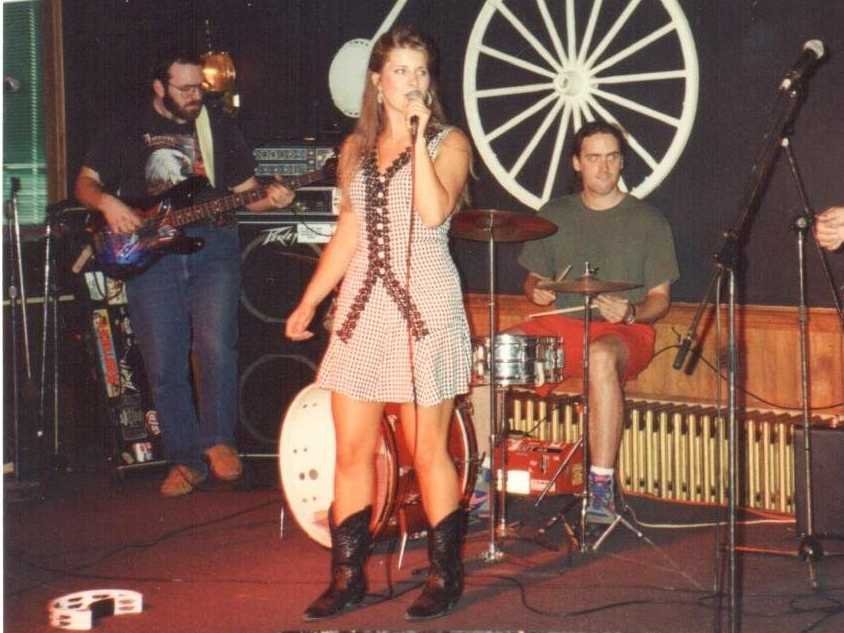Journal of Office Workers
Archive for October 25, 2014
How To Act After Getting A Rejection Letter
We all hate rejection. It makes us feel bad that someone doesn’t really like or want us. When you see you’ve been rejected in black and white it’s can take the wind out of our sail as a job seeker.
Related: How To Turn Job Rejection Into An Advantage
After we get a rejection letter and recover our balance the tendency is to shy away from that company, those people and maybe even that type of job. It can and often does, change our behavior and often not in a way that serves us well. Don’t let that be you.
Let’s look at a rejection letter first and then what your actions and behavior should be following a rejection letter.
What Does A Rejection Letter Really Mean?
If you made it through all of the screening process as a candidate, you are obviously well qualified for the position you pursued. It also means you’re doing a lot of things right in your job search to get this far. Keep doing the right things.
A rejection doesn’t mean you were a poor candidate, it means they felt more aligned with someone else. You never know how difficult the decision may have been between you and someone else. They had to make a decision and it could have come to something like a coin toss simply so they could move forward. They had to pick someone.
It means they thought well of you and despite any negative thoughts you might have about them, they’re feeling just fine about you.
The door on future opportunities is not closed. In fact, now that they know you so well, you could be considered for other openings. It’s more productive to utilize the applicant flow you have rather than dumping all the resumes and interview information than to start over again the next time.
The fact that the company went so far as to send you a rejection letter is a sign of a well run company.
So, often these days, the job search is a black hole of communications. If they thought enough of their candidates to do this level of follow up, you want to keep them on your radar.
What Should Your Behavior Be?
If you loved the position, hiring manager, and company then keep working at getting hired for a position. Just because they rejected you for this position doesn’t mean you wouldn’t be perfect for the next one. It’s not a door closer. You now have a list of “insider” contacts that you can use to your advantage.
After you let the dust settle for a while, circle back around with your contacts and let them know you want to be considered for other positions now or in the future. Showing some spunk and confidence is alluring and memorable. Keep your perspective about what this means.
A rejection letter shouldn’t cause you to change what you are doing unless this letter makes it a cool dozen you’ve received. If you have repeatedly got to the final round of interviews and not chosen, then rethink how you might be presenting yourself.
Sure, you’re going to feel rejected for a while after you get a rejection letter. Go indulge and yourself today then get over it and keep doing all the right things that got you this far.
This post was originally published at an earlier date.
Related Posts
3 Ways To Minimize Job Rejection
How To Deal With Rejection
Single-Most Important Letter In A Job Search
Photo Credit: Shutterstock
The post How To Act After Getting A Rejection Letter appeared first on CAREEREALISM.
from CAREEREALISM https://ift.tt/1uvyyaM
via IFTTT for Journal of Office Workers
Top 5 Proactive Job Interview Strategies
These days, it can be overwhelming to think about how much work goes into finding a job. If you are very serious about it, you have likely educated yourself in all the various facets of a job search and become well-equipped to go out and tackle the task. But, so have many others.
Related: How To Work Your Portfolio Into The Interview
Once a company narrows down the candidate pool to a group of people they want to meet, and you are one of them, it’s time to start thinking about your next steps. Only one person can be chosen in the end. When all things are equal, what makes you stand out?
Finding strategic and creative ways to land job interviews is half the battle. Once you are chosen for an interview, it’s not always going to be enough to arrive early, smile at the right times, answer the questions properly, ask the right questions, and then conduct all the proper follow-up tasks. Chances are you are going up against other candidates who will also be doing those same things. Now is the time to go that extra mile.
Top Job Interview Strategies
The best proactive job interview strategies are somewhat subtle in nature and just flow with the rest of the process. The following are the top five strategies 80% of candidates do not utilize:
1. Confirm your interview.
If you have at least a few days between when you set up your interview and when it actually takes place, use the extra time to your advantage. Call or e-mail to confirm the interview, and let them know you are really looking forward to it. Not very many candidates do this, yet it’s these little acts of professionalism that matter.
2. Develop a rapport with the people who interview you.
Typically interviews (including phone interviews), start out with some small talk. Don’t just answer questions asked of you, ask them questions too and get a lighthearted conversation going! Ask them how they are doing and maybe share a lighthearted story. Try to help take the rigid formality of a job interview down a notch so that the conversation can flow easier.
If any of the interviewers share something of some level of significance, be creative and use that information in further communications. Your thank-you letter to that person could briefly mention something that had come up.
For example, if an interviewer mentioned that his or her child was sick, why not briefly mention in your thank-you letter you hope his or her child is feeling better? Who wouldn’t appreciate that?
3. Ask if you can have a tour of the office/building/plant, and so on.
This is especially effective if the company has a manufacturing facility and you can ask a lot of questions about their products and how they are made. Regardless, this is a great way to show that you have strong interest in the company. While on the tour, bring up several things that you know about the company (you have done your homework, right?) and ask questions about them. Take notice of things you see and either compliment them or ask questions about them.
4. Make it clear you are interested in the job and the company and not “what’s in it for me?”
Try not to ask questions or makes statements that make it clear that you are only interested in how this job will affect you. Employers want individuals who care about the company. If it doesn’t come up in the interview, ask if you can learn about the company’s values and mission statement and talk about how it aligns with yours.
The values and mission statement are (or should be!) a very important part of a company’s culture. So few people ask about this stuff! Ask about how your job fits into the department and in the company as a whole. Show interest in what the company actually does. If you spend most of your time talking and asking about all the things that pertain to you, you will not be impressing anyone even if you provide otherwise good answers to the questions.
5. Send personalized thank-you letters to every person who was in the interview.
Personalized means personal and unique to each person who was in the interview. Make it different than the others–reference communication items that are specific to that person if you can. This is a great approach, different from just sending a standard copy/paste thank-you letter to them all.
Many candidates do send separate e-mails to each interviewer but the content is the same. Thank-you e-mails can and will get forwarded to others at times and when some were forwarded to me, I found it to be very impressive if the content was different from the one I received.
Handwritten ones are a great idea as well. It’s more personal which is a nice touch. If you can spare the time to go all out, hand write them and drop them off the same day or the next day, you should go for it!
It’s little things like this that break you apart from the masses and help you really stand out. Sure, some of these are a little extra work. But if it helps you get the job, isn’t it worth it?
This post was originally published at an earlier date.
Related Posts
The Secret To Acing A Job Interview
What To Say In Your Thank You Letter Besides ‘Thank You’
Interview Cheat Sheet: 8 Tips For A Flawless Interview
About the author
Jessica Simko is a personal/career branding strategist, job search expert, and senior level human resources professional with over 15 years of experience in recruiting, hiring, staffing, and career management. Please feel free to download her FREE report on “The Job Interview Game.”
Disclosure: This post is sponsored by a CAREEREALISM-approved expert. You can learn more about expert posts here.
Photo Credit: Shutterstock
The post Top 5 Proactive Job Interview Strategies appeared first on CAREEREALISM.
from CAREEREALISM https://ift.tt/1tSsI7P
via IFTTT for Journal of Office Workers
5 Easy Tips To Get Noticed By Prospective Employers
With the high rate of unemployment and so many people clamoring after the same jobs, it pays to stay ahead of the employment game. The trick is discovering and perfecting ways and means of doing so. If you are performing a sales vacancy search, there are many other job seekers doing the same thing. One of the best ways to stand out is to boost your job profile to get noticed by prospective employers. Here are five easy tips that will help:
1. Improve Job-Hiring Techniques
When it comes to areas like submitting a cover letter and resume, it is important to know what to say and how to say it. If you highlight the wrong points, in spite of your qualifications, you will be by-passed. Therefore, search out information that focuses on how to effectively compile a CV to impress employers.
2. Strengthen Communications
Taking courses to strengthen your speech can have a lasting effect on your verbal presentations. It will advance you in smooth and fluent responses during an interview. It is especially an asset if you are seeking a job that involves dealing with and talking to people.
3. Increase Linguistic Ability
Due to travel, technology and other modern inventions, the world has become a small place. Because of this, there is no telling who may cross your path. Adding another language to your speech can increase your chances of being hired. The more people with whom you can communicate, the better you can conduct and advance a business.
4. Enhance Technological Skills
Proficiency in the use of the computer and other technical devices will empower you to keep pace in an ever-changing workplace. By sharpening your skills in this area, the more proficient you will appear to a future employer. It will demonstrate your competency to get things done and to do them in an up-to-date fashion.
5. Sharpen Interpersonal Skills
Interpersonal skills are vital to any potential employees skill set. This qualification says to employers that you have the ability to interact with individuals effectively and efficiently. Sharpening these skills enables you to handle conflict resolutions and problem solving.
Whether you are seeking employment in the business of sales or similar category, you need an impressive job profile. It should be in place before your search begins. Without having to spend any money, you can work on the above-mentioned tips through self-help efforts.
This post was originally published at an earlier date.
Related Posts
5 Easy Ways To Stand Out To Employers
How To Stand Out: Define Your Strengths
The Right Resume Format To Get You Noticed
Photo Credit: Shutterstock
The post 5 Easy Tips To Get Noticed By Prospective Employers appeared first on CAREEREALISM.
from CAREEREALISM https://ift.tt/12vmfnb
via IFTTT for Journal of Office Workers
7 Tips For Writing A Great LinkedIn Invitation
Whether you’re new to LinkedIn or you’re a seasoned user, connecting with new people can be a challenge, especially when you’re not sure what to write in your LinkedIn invitation.
Related: How To Get A Recruiter’s Attention On LinkedIn
You might be tempted to use the generic “I’d like to add you to my professional network on LinkedIn” template, but beware! By not personalizing your message, you could lose a precious opportunity to network.
How To Write A LinkedIn Invitation
Here are seven great tips on writing LinkedIn invitations from our approved career experts:
1. Be Honest
“Explain why you want to connect with the person,” says Amanda Haddaway, author of Destination Real World: Success After Graduation For New And Soon-To-Be College Graduates. “Just say something. There’s nothing worse than receiving a LinkedIn request with the standard, generic format and not having any earthly idea who the person is or why he/she wants to connect with you.”
Dorothy Tannahill-Moran of Next Chapter New Life says honesty is the best policy when trying to connect with someone, especially if you’re looking to do some serious networking.
“If you want to work for their company,” Tannahill-Moran says, “don’t be shy about admitting that they are working for your targeted company and are looking for insights about that company. Open communication is always best.”
2. Tell Them How You Know Them
“I get a lot of requests and I always appreciate a brief mention of why the person wants to connect,” says Jenny Yerrick Martin of Your Industry Insider. “Whether they saw my post on a LinkedIn group, found me through my website, or know someone who knows me in real life, that extra step usually gets me to accept the invitation.”
3. Find Something In Common
When trying to to find something in common with your potential connection, Haddaway suggests asking yourself these questions:
- Is it a mutual career field or interest?
- Do you have connections in common?
- Are you connected through LinkedIn Groups?
Here’s a request example offered by Debra Wheatman of Careers Done Write:
Example: Dear Jane: I see that you are a member of xxx group. I am also engaged with this group and would like to share some ideas with you. Please accept my invitation to connect.
This example is short and sweet, but it gets the point across effectively.
4. Make It Personal
“One-size-fits-all invitations are a waste of time,” says Cheryl Simpson of Executive Resume Rescue.
Always personalize your invitation to connect in some way, she advises. Mention a shared group membership, note a common contact, or point out similar backgrounds, education, or experience. If all else fails, tell the prospective contact what you hope you both will gain from the connection.
5. Be Enthusiastic
“If you’re approaching the CEO/founder of startup on LinkedIn, as part of a job search, you want to start and end by showing your enthusiasm for their business,” says Kathy Ver Eecke of Working For Wonka. “Your expertise, background, and skill set should take a backseat to your enthusiasm and passion for their business. You want to get their attention and break the ice? Lead with that and you’re in.”
6. Reference Their Profile
Ben Eubanks of Upstart HR suggests taking a moment to check out your potential connection’s profile and referencing something in it.
Example: “Hey, Mike! I saw on your profile that you attended XYZ University. I have a great friend who went there and have heard great things about it. I’d love the opportunity to connect with you. Thanks! Have a great day.”
“Reaching out without offering some reason is a quick way to get your message relegated to the ‘spam’ folder, and LinkedIn will eventually suspend your account if you hit the limit of those responses,” he says.
7. Thank Them
Arnie Fertig of Job Hunter Coach says it’s important to thank the person in advance for agreeing to connect.
Not only that, but you also want to offer to help him/her in any way possible and encourage them to call on you. That way, your potential contact feels like they can benefit from the connection. Remember, you get what you give!
This post was originally published at an earlier date.
Related Posts
3 Secrets To Sending A LinkedIn Invitation That Works Every Time
4 Essentials For Reaching Out To Strangers On LinkedIn
How To Ask For LinkedIn Recommendations
Photo Credit: Shutterstock
The post 7 Tips For Writing A Great LinkedIn Invitation appeared first on CAREEREALISM.
from CAREEREALISM https://ift.tt/PaIeZR
via IFTTT for Journal of Office Workers
3 Ways To Advance Your Skills
These days, it’s all too common for job seekers to take a job that isn’t in their industry. The lack of jobs and ever increasing competitive job market certainly don’t help, and you’ve got bills to pay, food to eat, and possibly a family to care for.
Related: 5 Great Tools That Showcase Your Skills To Recruiters
Although it’s tough to stay happy at a job you don’t necessarily want, you know the position is taking care of your financial needs at the moment. But how can you advance your skills for a future job?
How To Advance Your Skills
If you’re worried that you might not be getting the experience you need, here are three ways to keep fortifying your professional talents:
1. Actively Seek Ways To Use Your Skills At Work
Whether you’re a writer working in sales or a business major working at a bank, there’s always some way of using the skills you’ve studied and practiced - wherever you go. You just have to actively seek it out.
For instance, I’m looking to be a reporter someday, but my current job involves office administration. I didn’t want my writing skills to suffer, so I decided to make up writing projects any way that I could to continue to strengthen my craft.
I wrote a summary of the company on the company website, I blog about the company whenever I get a chance, and even try to connect with other vendors via social media. All of these things were not in my job description, but as time progressed, I knew I had to use my skills somehow.
2. Ask Your Boss To Give You More Responsibilities
Taking on tougher tasks will help challenge you in the work field, and asking your employer for more responsibilities shows that you’re not afraid of a challenge. It also helps you stand out from the other employees in all of the right ways. It’s a win-win, you get to put your skills into practice and your employer has less work to think about.
Besides, even if your current job isn’t in your professional industry, not excelling at a job doesn’t exactly make you look like a professional.
3. Start A Blog And Utilize Social Media
Even if you’re not into blogging, tweeting, or posting on other people’s walls, learning how to market your company will help you learn more about who you’re working for.
The more you know about your employer’s business, the easier it will be for you to figure out how you can continue to be a valuable asset to that company.
Since it’s more common for employees to job hop these days, the last thing you want is to become expendable.
So, if you’re currently working at a job that isn’t in your professional field, remember, making your job work for your skills can help advance them and even make the job more enjoyable.
This post was originally published at an earlier date.
Related Post
5 Tips For Better Leadership Skills
5 Transferable Skills Job Seekers Need
How To Match Your Skills To The Job With Your Resume
Photo Credit: Shutterstock
The post 3 Ways To Advance Your Skills appeared first on CAREEREALISM.
from CAREEREALISM https://ift.tt/1oCKDG9
via IFTTT for Journal of Office Workers















